Cetirizine 10 Mg (Generic)
Cetirizine 10 mg (Generic) is an effective antihistamine used to relieve allergy symptoms such as runny nose, sneezing, itchy or watery eyes, and itching of the throat or nose. It also helps reduce itching and swelling caused by chronic urticaria (hives).
About Cetrizine 10 mg Tablet
Cetrizine 10 mg Tablet is used to treat various kinds of allergies. An allergy is an immune system response to foreign elements typically not harmful to your body. These foreign elements are known as ‘allergens.’ Allergic condition varies from person to person. Some might be allergic to certain foods and seasonal allergies like hay fever. At the same time, others might be allergic to pollen or pet dander.
Cetrizine 10 mg Tablet contains cetirizine (anti-histamine), which is used to treat allergies as it blocks the effects of a chemical messenger known as ‘histamine,’ which is naturally involved in allergic reactions. Additionally, Cetrizine 10 mg Tablet also treats hay fever (seasonal allergic rhinitis), round-the-year dust or pet allergies (perennial allergic rhinitis), and urticaria (swelling, redness, and itchiness of the skin). In short, it helps to relieve the discomfort and unpleasant symptoms that occur due to allergic conditions, like blocked/runny/itchy nose, red/watery eyes, and skin rashes.
Always take Cetrizine 10 mg Tablet exactly as your doctor has prescribed you. Like all medicines, Cetrizine 10 mg Tablet can cause some side effects; however, not everybody gets them. If you observe tiredness symptoms, feeling sleepy, abdominal pain, headache, dizziness, dry mouth, sore throat, nausea, cold-like nose symptoms (in children), or diarrhoea (in children). In very rare cases, people might have thought about committing suicide. If you feel like this, stop the medicine and immediately contact your doctor.
You should not take the Cetrizine 10 mg Tablet if you are allergic to cetirizine or have severe kidney failure (creatinine clearance less than 10 ml/min), urinary retention problem, and fructose intolerance. Do not give this medicine to children younger than six years of age. Check with your doctor if you are taking midodrine to treat low blood pressure and ritonavir for HIV infection. Let your doctor know if you are a pregnant woman or a nursing mother before taking Cetrizine 10 mg Tablet ; your doctor will decide whether breastfeeding mothers can take Cetrizine 10 mg Tablet or not.
Side Effects of Cetrizine 10 mg Tablet
- Headaches
- Dry mouth
- Feeling sick
- Dizziness
- Diarrhoea
Uses of Cetrizine 10 mg Tablet
Cetrizine 10 mg Tablet is used to relieve allergy symptoms. The detailed uses of Cetrizine 10 mg Tablet are as follows:
- Allergic Rhinitis: Cetrizine 10 mg Tablet provides relief from allergic rhinitis symptoms, including sneezing, runny nose, and itchy or watery eyes.
- Chronic Urticaria: Cetrizine 10 mg Tablet helps to relieve symptoms of chronic urticaria, including itching and hives, providing comfort from this skin condition.
- Seasonal Allergies: Cetrizine 10 mg Tablet effectively manages seasonal allergy symptoms, such as those caused by pollen, providing relief from environmental allergens.
- Dust Mite Allergy: Cetrizine 10 mg Tablet helps also alleviate symptoms caused by dust mite allergies, reducing allergic reactions in sensitive individuals.
- Animal Dander Allergy: Cetrizine 10 mg Tablet also helps relieve symptoms caused by animal dander allergies, making it easier for people to be around pets without experiencing severe allergic reactions.
Directions for Use
• Cetrizine 10 mg Tablet can be taken with or without food as advised by your doctor. • Follow your doctor’s instructions on the dosage and timing of this medication. • Swallow Cetrizine 10 mg Tablet as a whole with a glass of water. • Do not crush, break, or chew it.
Key Benefits
Cetrizine 10 mg Tablet is used to treat allergies as it blocks the effects of a chemical messenger known as ‘histamine,’ which is naturally involved in allergic reactions. Cetrizine 10 mg Tablet is used to treat adults and children (aged two years and above) who have hay fever (seasonal allergic rhinitis), round-the-year dust or pet allergies (perennial allergic rhinitis), and urticaria (swelling, redness, and itchiness of the skin). In short, it helps to relieve the discomfort and unpleasant symptoms that occur due to allergic conditions, like blocked/runny/itchy nose, red/watery eyes, and skin rashes.
How Cetrizine 10 mg Tablet Works
Storage
- Avoid driving or operating machinery or activities that require high focus until you know how the medication affects you.
- Maintain a fixed sleeping schedule, create a relaxing bedtime routine and ensure your sleeping space is comfortable to maximize your sleep quality.
- Limit alcohol and caffeine as these may worsen drowsiness and disturb sleep patterns.
- Drink plenty of water as it helps with alertness and keeps you hydrated and for overall well-being.
- Moderate physical activity can improve energy levels, but avoid intense workouts right before bedtime.
- Hydrate your body: Drink enough water to prevent dehydration and headaches.
- Calm Your Mind: Deep breathing and meditation can help you relax and relieve stress.
- Rest and Recharge: Sleep for 7-8 hours to reduce headache triggers.
- Take rest: lie down in a quiet, dark environment.
- Cold or warm compresses can help reduce tension.
- Stay Upright: Maintain good posture to keep symptoms from getting worse.
- To treat headaches naturally, try acupuncture or massage therapy.
- Over-the-counter pain relievers include acetaminophen and ibuprofen.
- Prescription Assistance: Speak with your doctor about more substantial drug alternatives.
- Severe Headaches: Seek emergency medical assistance for sudden, severe headaches.
- Frequent Headaches: If you get reoccurring headaches, consult your doctor.
- Headaches with Symptoms: Seek medical attention if your headaches include fever, disorientation, or weakness.
- Rest well; get enough sleep.
- Eat a balanced diet and drink enough water.
- Manage stress with yoga and meditation.
- Limit alcohol and caffeine.
- Physical activities like walking or jogging might help boost energy and make you feel less tired.
- Inform your doctor about dizziness symptoms. They may adjust your medication regimen or prescribe additional medications to manage symptoms.
- Follow your doctor’s instructions for taking medication, and take it at the same time every day to minimize dizziness.
- When standing up, do so slowly and carefully to avoid sudden dizziness.
- Avoid making sudden movements, such as turning or bending quickly, which can exacerbate dizziness.
- Drink plenty of water throughout the day to stay hydrated and help alleviate dizziness symptoms.
- If you’re feeling dizzy, sit or lie down and rest until the dizziness passes.
- Track when dizziness occurs and any factors that may trigger it, and share this information with your doctor to help manage symptoms.
- Inform Your Doctor: Notify your doctor immediately about your diarrhoea symptoms. This allows them to adjust your medication or provide guidance on managing side effects.
- Stay Hydrated: Drink plenty of fluids to replace lost water and electrolytes. Choose water, clear broth, and electrolyte-rich drinks. Avoid carbonated or caffeinated beverages to effectively rehydrate your body.
- Follow a Bland Diet: Eat easy-to-digest foods to help firm up your stool and settle your stomach. Try incorporating bananas, rice, applesauce, toast, plain crackers, and boiled vegetables into your diet.
- Avoid Trigger Foods: Steer clear of foods that can worsen diarrhoea, such as spicy, fatty, or greasy foods, high-fibre foods, and dairy products (especially if you’re lactose intolerant).
- Practice Good Hygiene: Maintain good hygiene to prevent the spread of infection. To stay healthy, wash your hands frequently, clean and disinfect surfaces regularly, and avoid exchanging personal belongings with others.
- Take Anti-Diarrheal Medications: If your doctor advises, anti-diarrheal medications such as loperamide might help manage diarrhoea symptoms. Always follow your doctor’s directions.
- Keep track of your diarrhoea symptoms. If they don’t get better or worse or are accompanied by severe stomach pain, blood, or dehydration signs (like extreme thirst or dark urine), seek medical help.
- If you experience persistent or severe malaise (a general feeling of discomfort, illness, or unease) after taking medication, seek medical attention immediately.
- Inform your doctor about the medication you’re taking and the symptoms you’re experiencing.
- Your treatment plan may be modified, which may include adjusting the dosage, substituting with an alternative medication, or discontinuing the medication. Additionally, certain lifestyle changes may be recommended to help manage symptoms.
- To manage malaise symptoms, follow your doctor’s advice, such as getting plenty of rest, staying hydrated, and practicing stress-reducing techniques.
- Track your symptoms regularly and report any changes or concerns to your healthcare provider to ensure the malaise is managed effectively.
- Preventing Vomiting (Before it Happens)
- Take medication exactly as prescribed by your doctor. This can help minimize side effects, including vomiting.
- Having a small meal before taking your medication can help reduce nausea and vomiting.
- Talk to your doctor about taking anti-nausea medication along with your prescribed medication.
- Managing Vomiting (If it Happens)
- Try taking ginger in the form of tea, ale, or candy to help alleviate nausea and vomiting.
- What to Do if Vomiting Persists
- Consult your doctor if vomiting continues or worsens, consult the doctor for guidance on adjusting your medication or additional treatment.
What if I have taken an overdose of Cetrizine 10 mg Tablet
Drug Warnings
Tell your doctor if you are pregnant, plan to become pregnant, or are breastfeeding. If you become pregnant while taking Cetrizine 10 mg Tablet , consult your doctor. If you have kidney problems, dose adjustment might be required; the doctor will do it depending on your disease’s condition. Please inform your doctor if you have a problem passing urine and have epilepsy (fits) before starting Cetrizine 10 mg Tablet . If you are supposed to undergo skin testing, the doctor might advise you to stop taking Cetrizine 10 mg Tablet 72 hours before the test as it decreases response to skin prick test. Patients should be cautioned against getting engaged in work which requires too much mental alertness, like operating machinery or driving a motor vehicle after intake of Cetrizine 10 mg Tablet . Concurrent use of Cetrizine 10 mg Tablet with alcohol or other antidepressants should be avoided as it can reduce your mental alertness. Patients should avoid taking over dosage of Cetrizine 10 mg Tablet because of the increased risk of sleepiness and drowsiness at higher doses.
| Quantity |
|---|

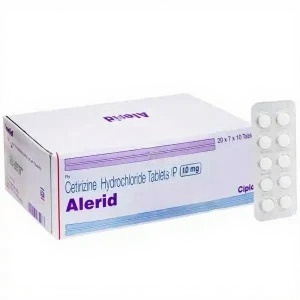
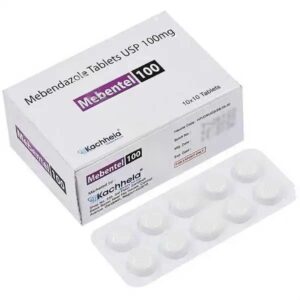
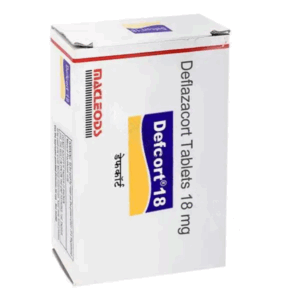
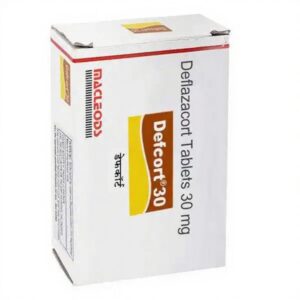
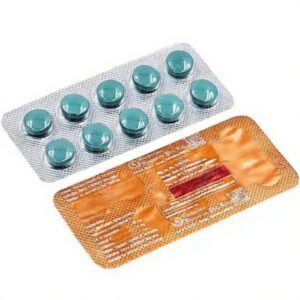
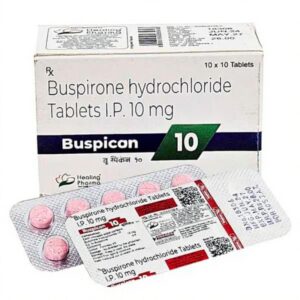
Reviews
There are no reviews yet.